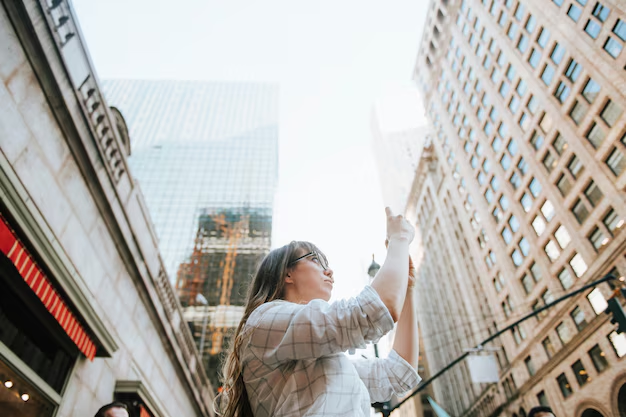Demystifying Sales Tax in New York City: What You Need to Know
Navigating the busy streets of New York City, one might wonder how the sales tax impacts every purchase, from your morning coffee to a trendy outfit at a boutique. While the appeal of NYC is undeniable, understanding its sales tax structure is equally important for residents and visitors alike. This comprehensive guide aims to unravel the complexities of New York City's sales tax, offering clear insights and practical tips.
What is the Current Sales Tax Rate in New York City?
The sales tax in New York City is a combination of state and local taxes. As of recent updates, the total sales tax rate in NYC is 8.875%. Here's how it breaks down:
- New York State Tax: 4%
- New York City Local Tax: 4.5%
- Metropolitan Commuter Transportation District (MCTD) Surcharge: 0.375%
This combination makes NYC's sales tax one of the higher rates in the country. Whether you're purchasing electronics, clothing, or dining out, this tax impacts many consumer goods and services, marking a significant addition to your total expenditure.
Exemptions and Special Cases in NYC Sales Tax
Not all purchases in New York City are subject to the sales tax. Understanding these exemptions can help you save money:
Clothing and Footwear Exemption
Clothing and footwear items under $110 per item or pair are exempt from the state sales tax. However, this threshold is pivotal—anything over $110 incurs the full tax rate of 8.875%.
Groceries and Prescription Medications
Essential grocery items and prescription medications are exempt from sales tax in NYC. This relief aims to make daily necessities more affordable, especially for families and low-income residents.
Additional Exemptions
- Newspapers and Periodicals: Generally exempt from sales tax, making it easier for New Yorkers to stay informed.
- Certain Services: Services such as haircuts and gym memberships are typically exempt, although specific personal services might be taxed.
How Sales Tax is Applied to Different Purchases
Understanding how sales tax is calculated and applied can empower you to make informed decisions while shopping.
Calculating Sales Tax
To calculate sales tax on a purchase, multiply the total price by the sales tax rate (8.875%). For instance, if you're buying a gadget priced at $200, the sales tax would be $17.75, bringing your total to $217.75.
Impact on Big-Ticket Items
For larger purchases, such as electronics or home appliances, the sales tax can significantly affect the total cost. Planning your budget with this in mind helps avoid surprises at checkout.
💡 Tip: When buying expensive items, consider timing your purchase during sales or holiday promotions to mitigate the impact of sales tax.
Comparing NYC Sales Tax with Other US Cities
New York City's sales tax isn't the highest in the U.S., but it's notably higher than many other major cities. Here’s how it compares:
| City | Sales Tax Rate |
|---|---|
| New York City | 8.875% |
| Los Angeles | 9.5% |
| Chicago | 10.25% |
| Houston | 8.25% |
| Philadelphia | 8% |
While NYC isn't the leader, it’s important to understand how these rates can affect competitiveness and consumer behavior in different locales.
Practical Tips for Managing Sales Tax in NYC
Shopping Strategies
- Take Advantage of Exemptions: For clothing purchases, strategize to keep individual items under $110.
- Plan Big Purchases: Consider timing for larger expenses and look for deals or discounts to alleviate tax costs.
Digital and Online Purchases
Sales tax isn’t limited to brick-and-mortar transactions. Online purchases delivered to New York City are subject to the same sales tax rules, provided the retailer has a physical presence in the state.
Business Considerations
Business owners should be particularly mindful of sales tax implications:
- Compliance: Ensuring that sales tax is correctly charged and remitted is crucial.
- Exemptions: Understand and make use of available exemptions specific to business purchases and transactions.
The Future of Sales Tax in New York City
Sales tax laws can be dynamic, subject to change as political and economic landscapes evolve. Keeping abreast of potential changes is vital for anticipating shifts in consumer and business costs.
Potential Changes
Occasionally, legislation proposes adjusting sales tax rates or altering exemptions. Staying informed about such proposals is beneficial since they can affect pricing strategies and spending patterns.
Economic Impacts
Sales tax rates can influence consumer spending, which in turn impacts local economies. Observing these trends can offer insights into broader economic patterns.
Key Takeaways: Understanding and Navigating NYC Sales Tax
Here’s a handy summary of what you need to know about New York City’s sales tax:
- Current Rate: 8.875% (includes state, local, and MCTD taxes). 📊
- Clothing/Footwear Exemption: Items under $110 are exempt from state tax. 🛍️
- Essential Exemptions: Groceries and prescriptions are tax-free. 🍎💊
- Online Purchases: Subject to sales tax if the seller has a presence in NY. 💻
- Compare Rates: NYC is competitive but not the highest among major cities. 🔄
- Plan Purchases: Use exemptions and sale events to your advantage. 📅
Avoiding unnecessary costs and planning effectively can minimize the impact of sales tax on your wallet, whether you’re a resident, business owner, or visitor. As NYC continues to evolve, staying informed and proactive will ensure you are well-prepared to make savvy financial decisions.

Related Topics
- a Sales Tax Is a Type Of
- Can I Deduct Vehicle Sales Tax On My Federal Return
- Do Gross Sales Include Sales Tax
- Do I Need To Collect Sales Tax For Selling Online
- Do You Pay Sales Tax At The Dealership Or Dmv
- Do You Pay Sales Tax On a House
- Do You Pay Sales Tax On Groceries In Washington State
- Do You Pay Sales Tax When You Buy a House
- Does Alaska Have a Sales Tax
- Does Alaska Have Sales Tax
